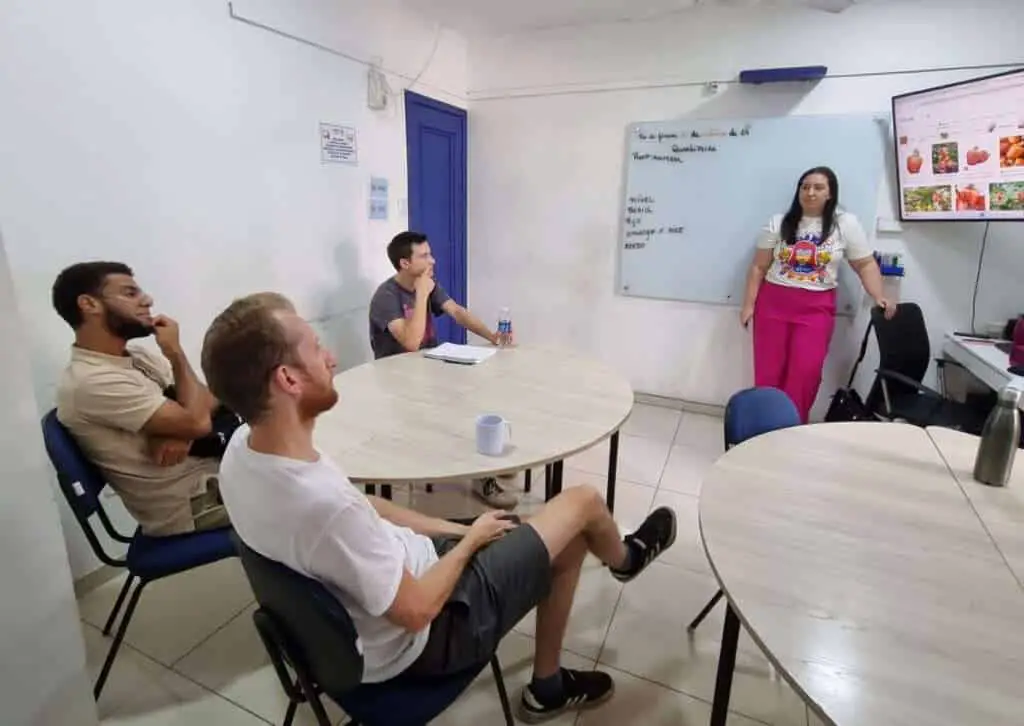Audio Lesson Archives
Video Lesson Archives
Download Audio and Video Lessons
Download Audio and Video Lessons
Add Lesson to Dashboard
Basic Lesson Checklist
Premium Lesson Checklist
The Review Track
Dialogue Only Track
Grammar Guide
Mark This Lesson Complete
Mark This Lesson as Favorite
Kanji Close Up
PDF Lesson Notes
PDF Lesson Transcript
Pop Out Audio Player
My Notes
Flashcards
Control Audio Speed
Glorious Fullscreen Video
Read Along with Video Lesson Captions
High Definition Dutch Video Lessons
Complete Assessments
Our team of Dutch language specialists have been releasing new audio and video lessons weekly. That’s a lot of Dutch language learning! All new lessons are FREE for the first 3 weeks before going into our Basic and Premium Archive.
Sign up for your Free Lifetime Account and unlock our entire lesson archive today!
Our team of Dutch language specialists have been releasing new audio and video lessons weekly. That’s a lot of Dutch language learning! All lessons are free for the first 2 weeks before going into our Basic and Premium Archive.
Sign up for your Free Lifetime Account and unlock our entire lesson archive today!
Want to learn offline or on-the-go? All our Audio and Video lessons can be easily downloaded with the click of a button. Load them onto your mobile device or simply listen offline from your computer. The choice is yours!
Sign up for your Free Lifetime Account and start listening today!
Want to learn offline or on-the-go? All our Audio and Video lessons can be easily downloaded with the click of a button. Load them onto your mobile device or simply listen offline from your computer. The choice is yours!
Sign up for your Free Lifetime Account and start listening today!
Customize your learning with your very own Dashboard. Get lesson recommendations suited for your level, track your progress and store your favorite lessons and series all in one convenient place.
Sign up for your Free Lifetime Account and create your personalized Dashboard today!
Having trouble staying on track? The Basic Lesson Checklist will help you stay organized and committed to your Dutch language goals!
Sign up for your Free Lifetime Account and stay on the fast track to fluency with the Basic Lesson Checklist today!
Having trouble staying on track? The Premium Lesson Checklist will help you stay organized and committed to your Dutch language goals!
Sign up for your Free Lifetime Account and stay on the fast track to fluency with the Premium Lesson Checklist today!
Listen and repeat with the Review Track. Hear the lesson vocabulary and main phrases and repeat after the native speaker – it’s the best way to perfect your pronunciation!
Sign up for your Free Lifetime Account and start perfecting your pronunciation today!
Don’t have enough time for an entire lesson today? Listen to the Dialogue Only Track to hear the native Dialogue. Listening to a little bit of Dutch everyday, no matter how much, will greatly improve your listening comprehension. Guaranteed!
Sign up for your Free Lifetime Account and unlock the power of the Dialogue Only Track today!
Access this Lesson’s Grammar Guide and unlock in-depth explanations, answers, examples, and a BONUS audio track.
Sign up for your Free Lifetime Account and get 7 Days of Premium Access including this feature.
Track your learning progress one lesson at a time! As you work your way through our lesson archives, we’ll track your progress so you can see just how fast you’re learning.
Sign up for your Free Lifetime Account and to start your progress today!
Like this lesson? Want to listen again later? Mark this lesson as a favorite and create a handy shortcut in your Favorite Lesson list!
Sign up for your Free Lifetime Account and start your learning today!
Take a closer look at the kanji characters used in the lesson Dialogue with the Kanji Close Up Practice Sheets! You’ll learn the meaning, readings, and stroke order of each character. Plus, improve your writing with kanji stroke order practice sheets!
Sign up for your Free Lifetime Account and master lesson kanji with the Kanji Close Up Practice Sheets today!
Follow along to our award winning lessons with detailed PDF Lesson Notes! These easy to print notes take a closer look at the grammar point and vocabulary words presented in the audio lesson. Plus, read more about Dutch cultural topics related to the lesson.
Sign up for your Free Lifetime Account and get even MORE Dutch language help with the PDF Lesson Notes today!
Want to understand every single word and phrase you’ll hear in this lesson?
Here’s how: just access the complete PDF transcript and you’ll never miss a word. Get your FREE Lifetime Account and unlock this powerful study tool.
Like to multitask while you study? Pop out the Audio Player to play in the background while you work, play or follow along with our Premium Tools.
Sign up for your Free Lifetime Account and start your learning today!
My Notes allows you to take notes while listening to our lessons. Come across an important verb conjugation breakthrough? Learn a handy mnemonic device? Make a note of it on the lessons pages and refer back to My Notes for quick reference!
Sign up for your Free Lifetime Account and start taking notes with My Notes.
Add this wordlist to your Premium Smart Flashcard Study Decks for faster memorization.
Didn’t catch that last word? Want to slow down the audio so you catch every single syllable? You can! All our audio files can be slowed down and sped up to match your speaking and listening needs.
Sign up for your Free Lifetime Account and start your learning today!
Sit back and enjoy the DutchPod101 video learning experience in all its fullscreen glory. Our Dutch specialists are consistently producing and releasing new video series, with all lessons free for the first 2 weeks before going into our Basic and Premium Archive.
Sign up for your Free Lifetime Account and unlock our entire lesson archive today!
Want to read along and FULLY understand the Dutch in this lesson? Just turn on the Video Captions. You’ll be able to read along as you watch – in Japanese or with English translations!
Improves reading, listening and comprehension skills – guaranteed!
Sign up for your Free Lifetime Account and start your learning today!
Unlock our high definition video lessons that get you speaking, reading, writing and understanding Dutch in minutes. Clearer picture, clearer sound – all so you learn Dutch without missing a beat.
Sign up for your Free Lifetime Account and learn Dutch with our fast, fun and easy video lessons.
How good is your Dutch? Let’s find out! Test your language skills with assessments. Unlock interactive assessments that test you on all of the Dutch you’ve learned so far.
Sign up for your Free Lifetime Account and access your Assessments today!










 Portuguese Classes to learn portuguese
Portuguese Classes to learn portuguese